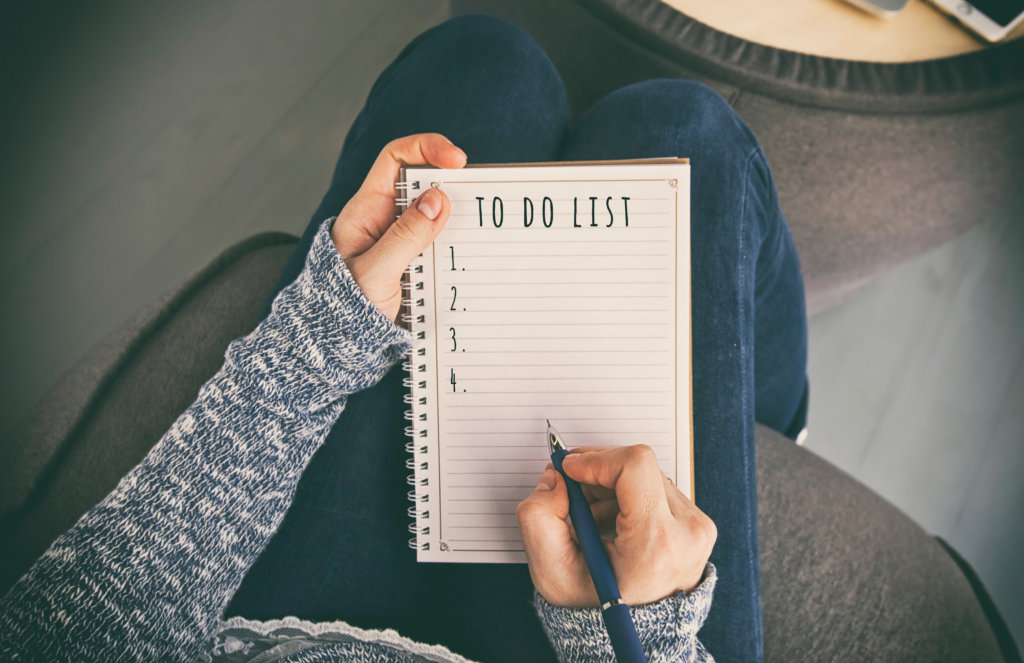7 Tips to Deal With Stress
National Stress Awareness Day is the day to identify and reduce the stress factors in your life, something Americans need desperately.
Americans are officially among the most stressed people in the world, according to a 2018 annual Gallup poll. About 55 percent of adults said they experienced stress during “a lot of the day” prior to the poll, compared with just 35 percent globally and 45 percent of Americans said they had felt “a lot” of worry the day before the poll, compared with a global average of 39 percent.
To combat the stress epidemic, aim to reduce and identify your stressors with these seven tips.
1. Get more sleep

Stress rises significantly when you are lacking sleep. However, stress can also be the cause of restless sleep. Instead of relying on medication every night before bed, try and maximize your relaxation before bed. This involves only being in your bed right before you go to sleep and avoiding caffeine and excessive alcohol. You should also stop doing any mentally demanding work for a few hours before going to bed to give your mind time to wind down. Try taking a warm bath or reading a light book to help relax your body, tire your eyes, and clear your mind. Also, aim to go to bed at roughly the same time each day so your mind and body can get used to a routine.
2. Indulge in physical activity

Exercise is one of the fastest ways to relieve stress, especially when it is combined with mindful breathing techniques. The best part about exercise alleviating stress is that you do not have to engage in rigorous exercises to reap the benefits. Anything from a walk around the block to stretching will release endorphins.
Endorphins are the body’s feel-good hormones. Exercising triggers your body to release endorphins, in turn, making you feel happier and less stressed. While your body releases endorphins, it is simultaneously reducing your stress hormones, such as adrenaline and cortisol. Not to mention regular physical activity will improve the quality of your sleep.
If you are unsure where to start, try out Xperience Fitness’s group classes, HIIT session, or get a free workout with a personal trainer.
3. Avoid caffeine, alcohol, and nicotine

Entirely avoid, or at least reduce, your consumption of nicotine and drinks containing alcohol and caffeine. Both caffeine and nicotine act as stimulants and will work to increase your level of stress rather than reduce it. While alcohol is a depressant when consumed in large quantities, it acts as a stimulant in smaller quantities.
Try swapping caffeinated or alcoholic drinks for herbal teas, water, or natural fruit juices. Being hydrated gives your body the energy it needs to better cope with stress.
Additionally, reduce or avoid refined sugars. Consuming too much sugar can lead to energy crashes, making you feel tired and irritable.
4. Talk to someone

Just talking about your stress and how you feel to someone else can be helpful. Talking can either distract you from your stressful thoughts or can release some of your built-up tension. Stress has the ability to cloud your judgment and prevent you from seeing the situation clearly. An outside perspective from a friend, coworker, family member, or therapist can help shed light on your situation in a way you may not have been able to see.
5. Keep a stress diary

Keeping a stress diary is an effective stress management tool because it will help you become aware of what your stressors may be.
Take note of the date, time, and place of each stressful episode. Note what you were doing, who you were with, and how you felt emotionally and physically. Rate each episode on a scale from least to most stressful and use the diary to see what triggers your stress and how effective you are in stressful situations. This can help you avoid stressful situations in the future, as well as help you develop better coping mechanisms.
6. Learn to say ‘No’

An incredibly common cause of stress is having too much to do and too little time to do it. Even in this situation, many will still accept additional responsibilities. When you learn to say “No” to unimportant or additional requests you may reduce your stress levels and it can help you develop more self-confidence.
Many people find it difficult to say “No” because they are trying to be nice, to be liked, and to help. For others, it may be a fear of conflict, missed opportunities, and rejection. You may feel reluctant to give respond a straight “No” to a request at first. So, try to think of a few pre-prepared phrases, such as, “I’m sorry I cannot commit to this as I have other priorities at the moment,” or, “Now is not a good time. Why don’t you ask me again at…?”
7. Manage your time

Sometimes we get so stressed that even creating a ‘To Do’ list is almost too much. However, a list of all the things you need to do organizes your brain and gives it a visual of your tasks. First, accept that you cannot do everything at once and begin prioritizing your tasks. Take note of what tasks you need to personally do and which tasks you can delegate.
By organizing your tasks based on how urgent they are and whether or not you can hand them off takes what started as an overwhelming list and turns it into a series of smaller, more manageable tasks.
